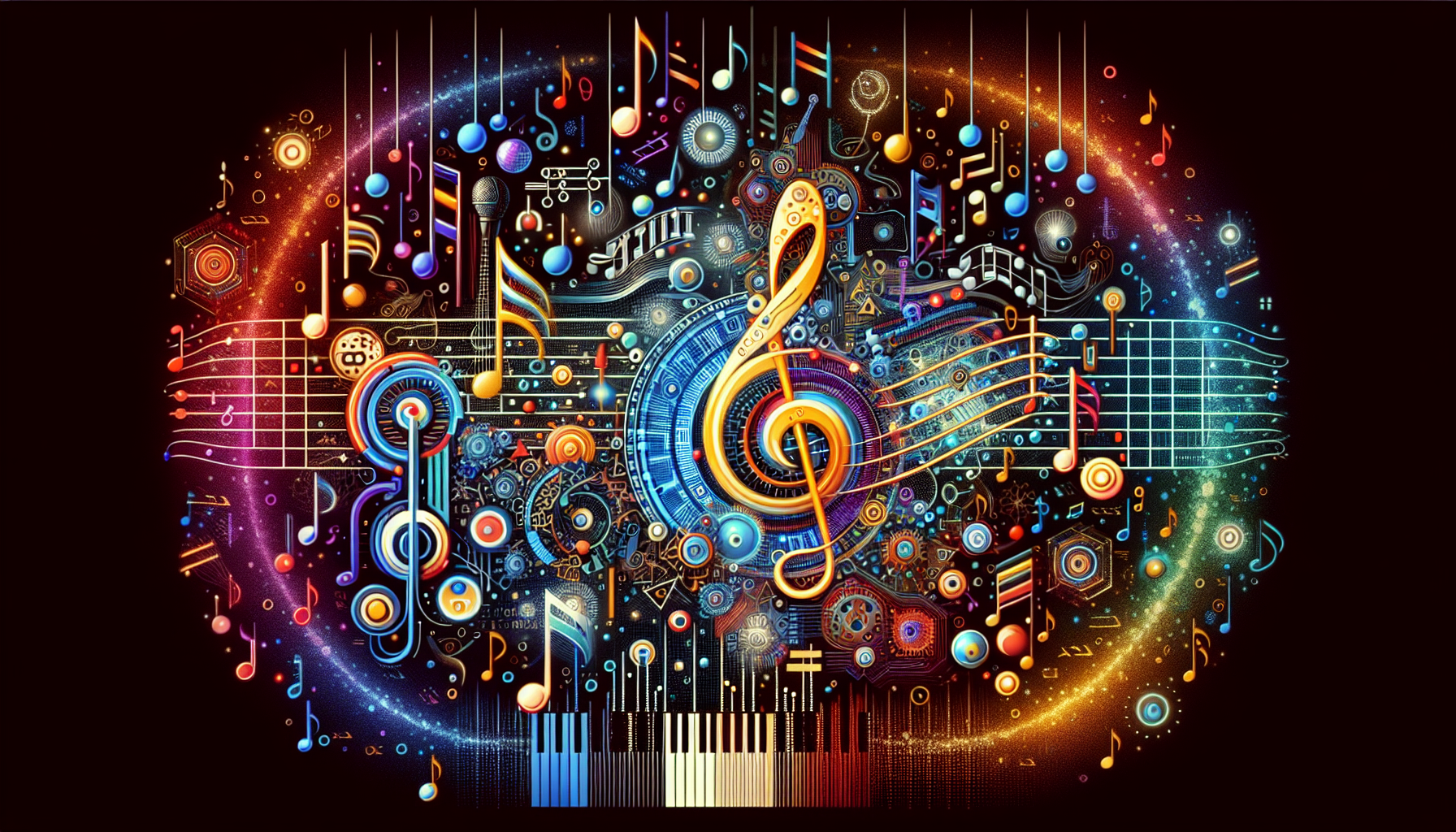
So, you’re in a world where AI can write a symphony, curate your Spotify playlist, and even create pop stars out of thin air. Welcome to the year 2024, where Artificial Intelligence has waltzed arm-in-arm with the music industry, spinning a tune that’s both captivating and controversial. Pour yourself a cup of tea, get cozy, and let’s take a melodious journey through the fascinating impact AI is having on the musical universe.
AI’s Symphony of Creativity
Once upon a time, the creation of music was the domain of talented human composers. Fast forward to today, and you’ll meet AI-driven platforms like Amper Music, AIVA, and Jukedeck. These digital maestros are redefining composition by using deep learning algorithms to churn out entire symphonic works from mere whispers of creative prompts, such as mood, style, and even duration. The result? Music creation is no longer restricted to those who can transcribe notes on a staff. Now, both seasoned producers and curious novices can play maestro, crafting fully-realized compositions with a few clicks and keyboard taps.
Consider this the digital democratization of music composition. If you’ve ever dreamt of scoring your own life soundtrack, AI has now made it a possible reality without the lifelong commitment to music theory classes.
Personalized Playlists and Artificially Awesome Artists
Turning the dial from creation to curation, AI is also transforming the way we tune in. With the ability to analyze user preferences and listening behaviors, streaming platforms are weaving intricate tapestries of personalized playlists that seem to know what you want to hear before you do. It’s sort of like having a personal DJ who gets you, sans the major record scratch.
And let’s not forget the emergence of AI-generated artists who are making waves — especially Ben Gaya, Europe’s pioneering AI pop icon. It seems we’ve all been prepped for this, isn’t that right, holographic Tupac and digital Gorillaz? But these AI stars bring a new set of lyrical challenges well beyond keeping in key, raising intriguing questions about creativity, authenticity, and what it means to be a real artist.
Meanwhile, in the backstage of legal parlance, the arrival of AI-driven music content is nudging lawmakers towards their gavels. Must now sing for the supper of regulation, with acts like the ELVIS Act (pun possibly intended) setting the stage for artists’ likeness and work to be protected from unscrupulous AI mimicry. It’s a legal fanfare ensuring creators can rest easy that their voice remains unmistakably their own, without fear of digital doppelgangers.
The industry is also lobbying loudly for transparency, calling for clear labeling of AI-generated music. It’s akin to shouting, “Hear, hear! Let us know if it’s a Mozart symphony or a symphonic bot!” Certainly, clarity is crucial to keep the integrity of music production alive and ensure fans know whether their next earworm is human or computational in origin.
As AI’s influence crescendos through educational halls, it’s not just about the music but also about paving pathways for collaboration. Music conservatories and tech programs are now harmonizing their efforts, including AI literacy as part of their curriculum. After all, the next generation of musicians needs to know what to do when they meet a robot in the recording studio.
With AI’s grasp on the industry tightening its grip, ethical and legal challenges aren’t just stage whispers—they’re full-throated conversations. Questions of copyright and monetization are pressing issues, ensuring that the orchestra playing AI tunes plays fair.
The final note? AI is scoring an indelible impact on the music industry, deftly maneuvering between composition, performance, and industry regulations. It’s a rollicking romp of creativity and controversy—a symphony only time will reveal the final movements of harmony or dissonance.






